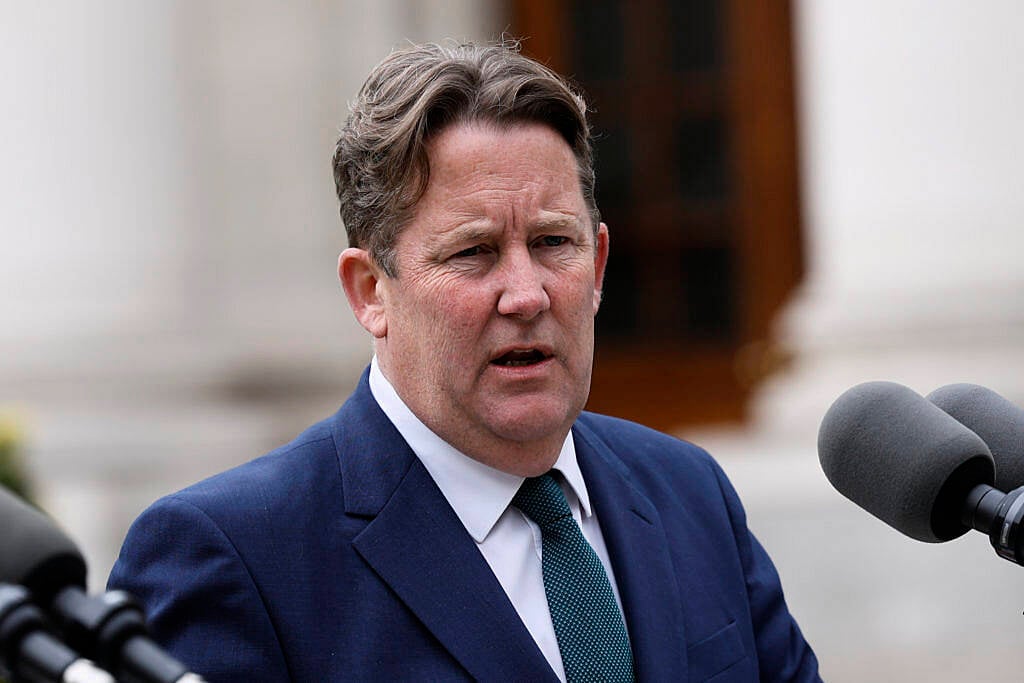Business
Irish Taxpayers Foot €10 Million Bill for US Military Air Traffic Control

The Irish taxpayer has incurred a significant cost, amounting to €10.1 million, for air traffic control services provided to US military aircraft operating in Irish airspace since 2018. This expenditure arises from a policy that exempts foreign military flights from standard en-route charges levied by AirNav Ireland (ANI), the agency responsible for managing air traffic in Ireland.
According to information released by the Departments of Defence and Transport in response to inquiries from Sinn Féin TD Maireád Farrell, the US military’s use of Irish airspace has resulted in substantial financial implications for the Irish state. The total costs incurred from en-route services and North-Atlantic Communications charges for US military flights are projected to reach €10.1 million by September 2025, inclusive of VAT.
Darragh O’Brien, Minister for Transport, clarified that the exemption for foreign military aircraft aligns with common international practices. He explained, “In relation to en-route charges, the policy and general practice at international level is to exempt foreign military flights from these charges. Ireland, in common with the vast majority of EUROCONTROL’s other 41 member states, subscribes to this practice.”
The figures released also highlight the additional security costs incurred by the Irish Defence Forces for US military aircraft operations at Shannon Airport. From 2018 to 2022, these security services cost the Irish taxpayer €965,471. On average, the annual expense for this security provision has been around €241,368. Although specific figures for the most recent years were not disclosed, the total security costs over the four-year period approached €1 million.
Furthermore, terminal charges for US military aircraft that have landed at Irish airports contributed an additional €500,000 to the overall expenditure. The financial burden of these costs has raised questions about the implications of such exemptions on the national budget and the priorities of the Irish Government.
As the situation develops, the ongoing financial commitments associated with foreign military air traffic will likely continue to be a topic of discussion among policymakers and the public alike. The significant sums involved highlight the complexities of international military cooperation and the associated costs borne by the Irish taxpayer.
-

 Top Stories3 months ago
Top Stories3 months agoTributes Surge for 9-Year-Old Leon Briody After Cancer Battle
-

 Entertainment4 months ago
Entertainment4 months agoAimee Osbourne Joins Family for Emotional Tribute to Ozzy
-

 Politics4 months ago
Politics4 months agoDanny Healy-Rae Considers Complaint After Altercation with Garda
-

 Top Stories4 months ago
Top Stories4 months agoIreland Enjoys Summer Heat as Hurricane Erin Approaches Atlantic
-

 World5 months ago
World5 months agoHawaii Commemorates 80 Years Since Hiroshima Bombing with Ceremony
-

 Top Stories3 months ago
Top Stories3 months agoNewcastle West Woman Patricia Foley Found Safe After Urgent Search
-

 Top Stories5 months ago
Top Stories5 months agoFianna Fáil TDs Urgently Consider Maire Geoghegan-Quinn for Presidency
-

 World5 months ago
World5 months agoCouple Convicted of Murdering Two-Year-Old Grandson in Wales
-

 World5 months ago
World5 months agoGaza Aid Distribution Tragedy: 20 Killed Amid Ongoing Violence
-

 World5 months ago
World5 months agoAristocrat Constance Marten and Partner Convicted of Infant Murder
-

 Top Stories4 months ago
Top Stories4 months agoClimbing Errigal: A Must-Do Summer Adventure in Donegal
-

 Top Stories4 months ago
Top Stories4 months agoHike Donegal’s Errigal Mountain NOW for Unforgettable Summer Views









